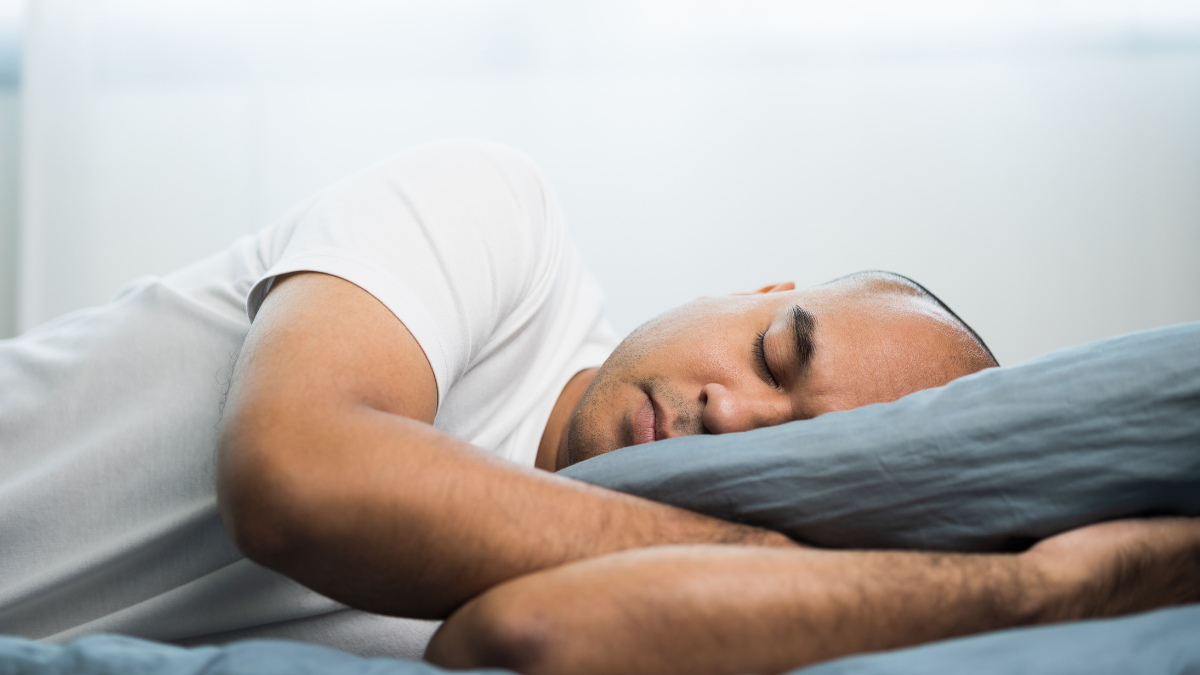View this post in ASL in a new tab, or scroll to the bottom of the page for the video.
We all feel better when we get a good night’s sleep. We’re able to focus, keep our productivity up and be in a better mood.
But getting a solid amount of rest isn’t always easy. However, incorporating healthy habits into your lifestyle can help you reap the powerful benefits of getting enough sleep.
How much sleep is enough?
The amount of recommended sleep varies by age. The National Sleep Foundation recommends 7-9 hours of sleep for adults 18-64, and 7-8 hours for those 65 and older.
The Power of a Good Night’s Sleep
“When we get a healthy amount of sleep, it helps with our mental clarity, and it even helps keep our immune system in check,” said Jessica Vogle, the WellPower’s health education manager.
It can also help you maintain a healthy weight.
“We have a tendency to make poor food choices when we’re not sleeping well,” Jessica said. “When we’re tired and have less energy, it often leads to a lack of exercise.”
And sleeping poorly, or not enough, slows the body’s metabolism. It can trigger the body to make more insulin and cortisol, which prompt the body to store energy as fat. It can also lead to changes in hormones that regulate hunger and feelings of fullness.
On the other hand, sleeping too much is also linked to weight gain. And it can cause other issues including:
- Cognition and memory problems
- Depression, anxiety and other mood disorders
- Increased inflammation in the body
- Body pain
- Increased risks for heart disease and stroke
How to Get a Good Night’s Sleep
So, what can you do to try to get the ideal amount of sleep? Practicing healthy habits during the day and evening can help.
- Establish a regular bedtime routine. Try taking a warm shower or bath, reading a book or doing light stretches.
- Create a pleasant sleep environment. Keep your bedroom between 60 and 67 degrees, turn lights off and use a comfy mattress and pillows. Try using blackout curtains, eye shades, ear plugs, a sound machine or a humidifier.
- Avoid stimulants such as caffeine and nicotine close to bedtime. When it comes to alcohol, moderation is key. Too much too close to bedtime can disrupt sleep later in the night as the body begins to process the alcohol.
- Steer clear of foods that can cause heartburn before sleep. Avoid rich, fatty, fried and spicy dishes, as well as citrus fruits and carbonated drinks.
- Limit daytime naps to 30 minutes. Napping doesn’t make up for inadequate sleep, but a short nap can help improve your mood, alertness and performance.
- Exercise. As little as 10 minutes of aerobic exercise during the day can make a difference.
- Soak in some natural light. Venture outside during the day to get some sunlight.
- Try foods that contain tryptophan, magnesium, calcium and vitamin B-6. These vitamins and minerals can help the body produce melatonin, the hormone that is responsible for regulating your sleep/wake patterns.


